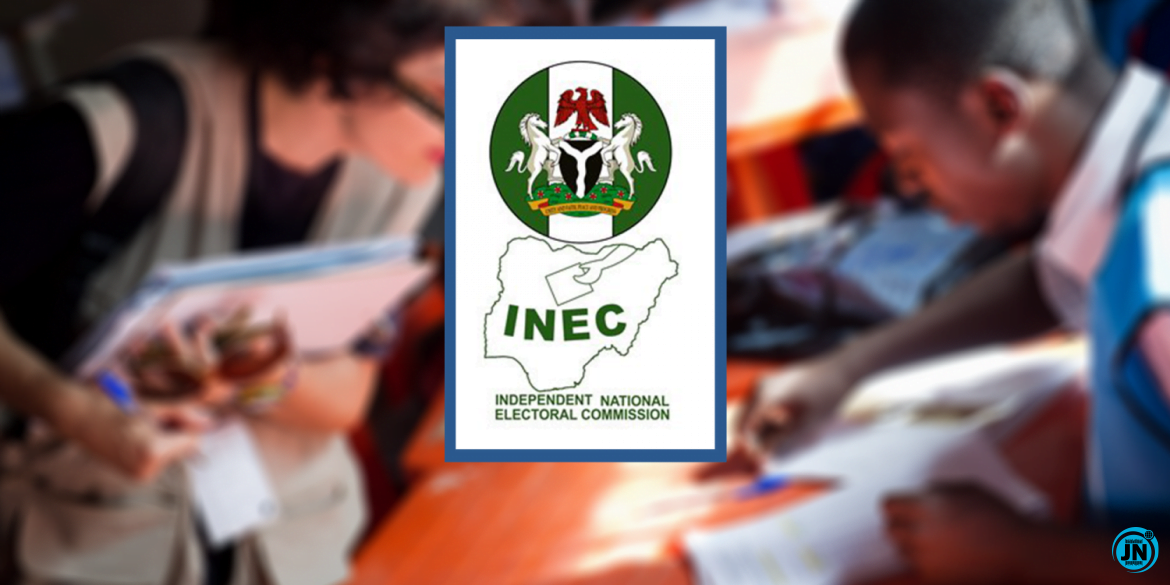
The Independent National Electoral Commission (INEC) has urged the National Assembly to enact stricter laws prohibiting individuals, especially politicians, from carrying large sums of cash at polling stations during elections.
This proposal is part of a broader effort to combat vote-buying and other electoral malpractices, which have remained persistent threats to Nigeria’s democracy.
Reports indicate that during a high-level consultative meeting in Abuja over the weekend, INEC’s Director of Litigation and Prosecution, Tanimu Muhammed, SAN, raised serious concerns about the rising trend of vote-buying. He described it as a significant obstacle to free and fair elections in the country.
The meeting, organized by the Joint Senate and House of Representatives Committees on Electoral Matters in collaboration with the Policy and Legal Advocacy Centre (PLAC), was supported by the UK Foreign, Commonwealth, and Development Office (FCDO). It provided a platform for electoral stakeholders, including lawmakers, security agencies, and civil society organizations, to deliberate on electoral security and necessary legal reforms.
Muhammed explained that politicians often claim to carry large amounts of cash on election day to settle party agents, cover transportation costs, and handle logistics. However, he pointed out that such unregulated cash movements contribute significantly to vote-buying, thereby undermining the credibility of elections. To mitigate this issue, he proposed that individuals be restricted to carrying a maximum of ₦50,000 at polling locations.
“Vote-buying remains one of the greatest threats to credible elections in Nigeria. We need not only punitive laws against this malpractice but also preventive measures that discourage it from occurring in the first place,” Muhammed emphasized.
In addition to the proposed cash limit, INEC called on lawmakers to address existing legal loopholes that enable political actors to exploit the system. The electoral body emphasized that without proper legal backing and enforcement mechanisms, vote-buying and other forms of electoral fraud would continue to thrive.
Furthermore, INEC officials reiterated their longstanding demand for the establishment of an Electoral Offenses Commission. They argued that while INEC is responsible for conducting elections, it lacks the authority and resources to effectively prosecute electoral offenders.
“Establishing an Electoral Offenses Commission would ensure that crimes such as vote-buying, ballot-snatching, and result manipulation are swiftly dealt with,” Muhammed added.
Ondo Resident Electoral Commissioner, Oluwatoyin Babalola, also weighed in on the issue, stating that limiting cash transactions at polling units would significantly reduce the influence of money in elections. She explained that vote-buying thrives because politicians take advantage of the poverty and financial vulnerability of many voters.
“If we restrict the movement of large sums of cash at polling stations, it would be much harder for politicians to induce voters financially. This would go a long way in restoring the integrity of our electoral process,” she said.
Security agencies present at the meeting reaffirmed their commitment to ensuring free and fair elections but acknowledged facing logistical challenges. The Commissioner of Police in charge of election planning and evaluation, Abayomi Shogunle, who represented the Inspector General of Police, highlighted these challenges, particularly in the deployment of officers and maintaining real-time communication on election day.
“Our officers often struggle with logistics, especially in reaching remote areas and ensuring efficient communication during elections. These challenges must be addressed if we are to effectively enforce electoral laws,” Shogunle explained.
Despite these concerns, security agencies assured Nigerians of their neutrality and professionalism in carrying out their duties during elections.
In response to INEC’s concerns, the Chairman of the House Committee on Electoral Matters, Hon. Adebayo Balogun, assured stakeholders that their recommendations would be taken into consideration in upcoming electoral reforms. He confirmed that the National Assembly is already working on replacing the 2022 Electoral Act with a revised version in 2025, which would incorporate lessons learned from the 2023 general elections.
“The 2022 Electoral Act was a major step forward in improving Nigeria’s electoral process, but its implementation revealed several areas that need urgent refinement. We are committed to strengthening our electoral laws to align with the evolving realities of our democracy,” Balogun stated.
He also stressed the importance of educating political parties, electoral officials, and civil society organizations about the dangers of vote-buying and the need for urgent legislative interventions.
“Nigerians deserve an electoral process that is free, fair, and credible. Our laws must not only be strong in theory but must also be effectively enforced to deter violations,” he added.
Similarly, Senate Chairman on Electoral Matters, Senator Sharafadeen Alli, acknowledged that while the 2022 Electoral Act was initially perceived as comprehensive, its practical application had exposed various gaps that require urgent correction.
“This consultative meeting is an important step toward strengthening our electoral system. The reforms we propose must reflect the realities of our past elections and ensure that our democracy continues to advance in a positive direction,” Alli noted.
As discussions on electoral reforms continue, Nigerians are hopeful that these proposals will translate into actionable policies that enhance the credibility of future elections.

